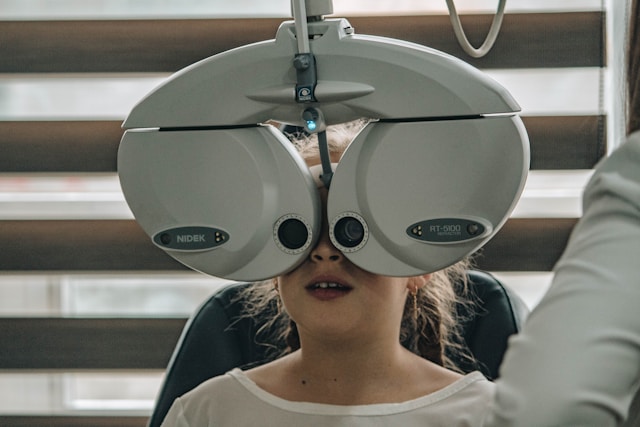
The Importance of Regular Screenings and Health Check-Ups
Maintaining good health involves more than just managing symptoms when they arise. Regular health screenings and check-ups are essential components of a proactive approach to preventative care. These routine assessments help identify potential health concerns before they become more serious, allowing for early intervention and better outcomes. In this guide, we’ll look into why regular screenings are important, what they include, and how they contribute to overall well-being.
Why Regular Screenings Matter
Preventative care through regular screenings and health check-ups plays a crucial role in promoting long-term health. These visits allow healthcare professionals to detect potential health issues in their earliest stages, making them easier to manage or even prevent. From monitoring vital signs to conducting specific tests, regular screenings can lead to early diagnosis, which often translates to more effective treatment options.
Essential Screenings for Different Age Groups and Genders
The importance of screenings can vary based on age, gender, and individual health history. Below are some essential screenings recommended for different groups:
1. Blood Pressure Checks
Monitoring blood pressure is vital for both men and women to prevent conditions like hypertension, which can lead to heart disease, stroke, and kidney issues. Regular blood pressure screenings help manage and maintain healthy levels.
2. Cholesterol Tests
Heart health is closely linked to cholesterol levels. High cholesterol can increase the risk of cardiovascular diseases, making regular cholesterol tests an important part of preventative care.
3. Cancer Screenings
Early detection of cancer through screenings such as mammograms, colonoscopies, Pap smears, and prostate exams can significantly improve treatment outcomes see casinoclic . Depending on age and family history, these screenings should be done at specific intervals.
4. Eye Exams
Regular eye exams are important for detecting issues such as glaucoma, cataracts, and age-related macular degeneration, which can lead to vision loss if left untreated.

5. Diabetes Screenings
Individuals at risk for diabetes or with a family history of the disease should undergo regular screenings to monitor blood sugar levels and prevent complications associated with diabetes.
Benefits of Early Detection
One of the most significant advantages of regular screenings is the potential for early detection. Health conditions such as cancer, heart disease, and diabetes often do not present symptoms in their early stages. Routine screenings provide a proactive way to identify these issues before they escalate into more severe health problems.
How Screenings Prevent Serious Health Issues
- Heart Disease: Early detection of high blood pressure and cholesterol levels can prevent heart attacks and strokes.
- Cancer: Routine screenings like mammograms and colonoscopies can detect cancer at a stage where treatment is more effective.
- Diabetes: Blood sugar tests help manage diabetes early, reducing the risk of complications such as nerve damage and organ failure.
How to Make Regular Check-Ups Part of Your Routine
Establishing a regular health screening schedule ensures that you stay proactive about your health. Here are some steps to incorporate screenings into your life:
1. Set a Schedule
Work with your healthcare provider to establish a screening timeline that works for you. This may include annual or biennial check-ups depending on your age, risk factors, and personal health history.
2. Know What Screenings You Need
Your healthcare provider will recommend specific tests and screenings based on your age, gender, family history, and lifestyle. For example, women might need regular mammograms after a certain age, while men may require prostate exams.
3. Prepare for Your Visit
Before attending a screening or health check-up, prepare by gathering any necessary medical history and listing any symptoms or concerns. This helps ensure a comprehensive assessment during the visit.
4. Follow Up
After screenings, it is essential to discuss results with your healthcare provider. Early intervention can often mean the difference between managing a condition successfully or needing extensive treatment.
What to Expect During Screenings and Check-Ups
Health screenings can vary depending on the type but may include a comprehensive evaluation of various health indicators. Below is an overview of what a typical check-up may include:
1. Vital Sign Measurements
This includes assessments of blood pressure, heart rate, and respiratory rate. These help monitor cardiovascular and respiratory health.
2. Lab Tests
Blood tests may be conducted to evaluate cholesterol, blood sugar, liver function, and other key health markers.
3. Physical Examinations
Physical exams may involve checking for abnormalities in organs, tissues, and the body’s systems.
4. Specialized Screenings
Depending on age and risk factors, specialized screenings such as mammograms, colonoscopies, and bone density tests may be performed.
Long-Term Health and Well-Being
Regular health screenings are not just about catching problems early; they are about maintaining a state of overall well-being. By addressing potential issues before they escalate, individuals can enjoy a higher quality of life with fewer complications. Staying proactive about your health involves more than just reacting to symptoms—it’s about building a foundation of continuous care and health education.
Conclusion
Overall, the benefits of regular health screenings are significant. They are a critical step in maintaining long-term health and ensuring that any potential health concerns are managed promptly. By making regular check-ups a priority, individuals empower themselves to take control of their health and well-being.